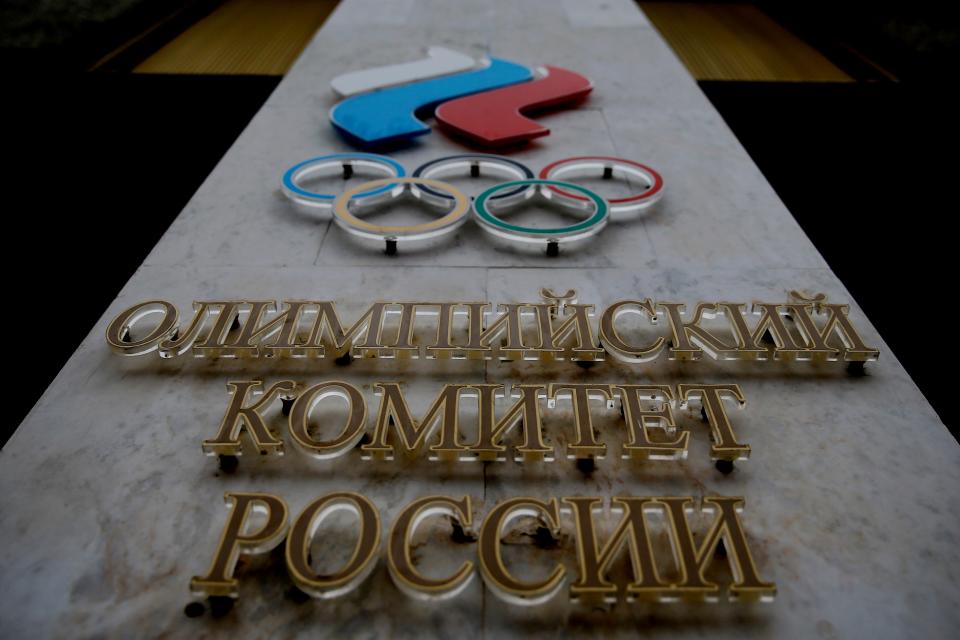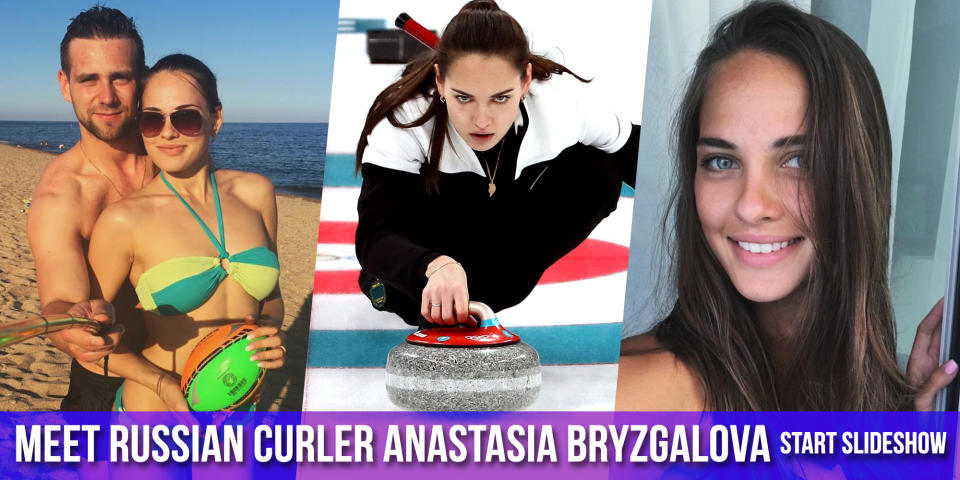Russia has met requirements for Olympic reinstatement ... except for, well, not doping
The International Olympic Committee will soon decide whether Russia, despite doping disgrace, is fit for Olympics reinstatement. And throughout the week, all signs pointed in one direction. All indications were that Russian colors would fly loud and proud in PyeongChang on Sunday.
“The IOC is edging closer to allowing Russia to march behind their national flag at the Closing Ceremony,” Reuters wrote on Thursday, citing sources.
Russia’s reinstatement depends on its ability to comply with a PyeongChang Games “code of conduct,” a set of expectations and rules spelled out before the 2018 Olympics began. By all accounts, it has met most of those expectations. Very few, if any Russian athletes have publicly criticized the IOC or spoken out against the ban. And the Russian Olympic Committee (ROC) fulfilled one of the final requirements on Thursday, paying a $15 million fine that will go toward international anti-doping efforts.
The IOC is set to meet on Saturday to review Russia’s compliance. Its executive board will consider a report from a special panel. It will then decide early Sunday on reinstatement, hours before the Closing Ceremony in PyeongChang.

And whether it’s the brief meeting between IOC president Thomas Bach and ROC vice president Igor Levitin on Wednesday, or the swift and somewhat amicable handling of a Russian curler’s doping case, or an IOC executive director telling Reuters last week that there had been no signs of Russian rule infringement, everything had suggested Russia would be reinstated. That “OAR” would become “RUS.” That the white, blue and red flag would be permitted at the Closing Ceremony Sunday night.
Everything, except for one simple fact: That whole doping thing … uh, it appears to still be an issue.
The very reason Russia was banned still plagues it, and could – should – haunt its case for reinstatement. Russian curler Aleksandr Krushelnitsky was stripped of his bronze medal after testing positive for meldonium. Now a second Russian athlete, bobsledder Nadezha Sergeeva, has tested positive for a banned substance.
The ROC, and some within the IOC, will surely argue that these are isolated incidents. But it’s tough to pass off as coincidence the fact that two of the four positive tests in PyeongChang have been Russian.
There’s also this, however, from the New York Times’ Tariq Panja:
A senior I.O.C. official, who is aware of the panel’s thinking, said they would likely not take the new failed test into consideration because the process of evaluating and confirming the sample was not yet complete.
The IOC, ever benevolent toward Russia and its money, could very well still talk itself into reinstatement, or at least some form of reinstatement. Krushelnitsky, the curler, has returned his medal, a Court of Arbitration for Sport hearing was cancelled, and Russian officials accepted the guilty verdict. That reeks of an attempt to move on, to bury the story, and to prepare for reconciliation.
The second doping case, though, will test the IOC’s gall. Will it really risk the wrath and ridicule of the sporting world to grant such remarkable and brisk leniency?
Per another report Friday, it might not. “Until this latest incident, there had been widespread optimism from Russian officials here that they would be allowed to take part in the Closing Ceremony,” Inside the Games’ Duncan Mackay wrote. “It is widely expected that this latest case will end any hope the Russian Olympic Committee has of its suspension … being lifted or the team being allowed to march under their own country’s flag.”



